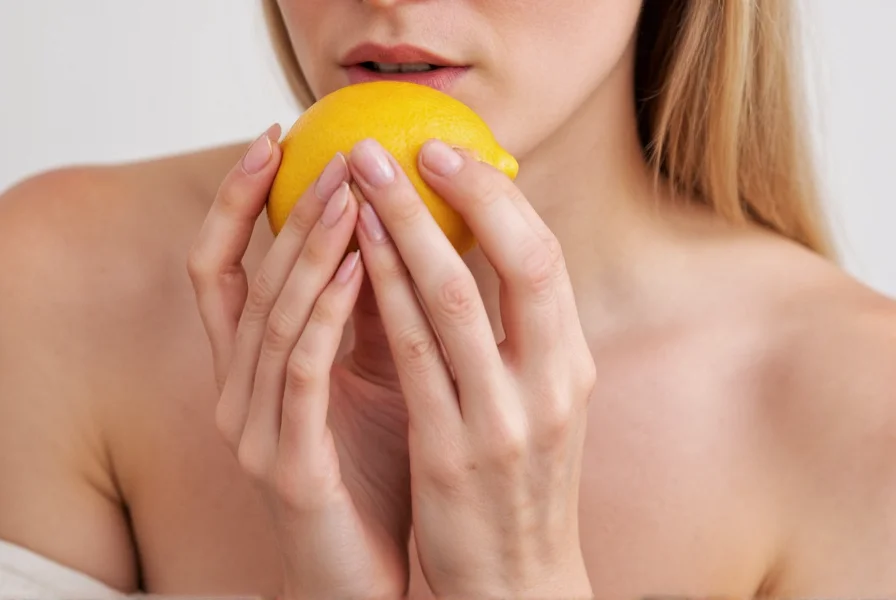When that familiar scratchy feeling hits your throat, many people turn to natural remedies before reaching for medication. Ginger and citrus ingredients rank among the most popular home treatments for sore throats worldwide. But what does the science actually say about using ginger and lemon—often confused with lemon leaf—for throat discomfort?
The Science Behind Ginger for Sore Throat Relief
Ginger (Zingiber officinale) contains bioactive compounds like gingerols and shogaols that demonstrate significant anti-inflammatory and antimicrobial effects. A 2019 study published in Food Science & Nutrition confirmed ginger's ability to inhibit the growth of bacteria commonly associated with throat infections. When consumed as tea or in raw form, ginger stimulates saliva production and mucus secretion, creating a soothing coating effect on irritated throat tissues.
Research shows ginger's effectiveness isn't just anecdotal. A clinical trial involving 120 participants with upper respiratory infections found that those who consumed ginger tea experienced significantly faster reduction in throat pain compared to the control group. The anti-inflammatory properties work by inhibiting the production of cytokines that cause inflammation and pain signaling.
Lemon vs. Lemon Leaf: Understanding the Difference
Here's where clarification is essential: most scientific research focuses on lemon fruit (citrus juice and peel), not lemon leaves. While lemon fruit contains high levels of vitamin C and citric acid that can help break up mucus and create an unfavorable environment for bacteria, lemon leaves have different chemical properties.
| Component | Primary Benefits | Research Support |
|---|---|---|
| Ginger | Anti-inflammatory, antimicrobial, pain relief | Strong clinical evidence |
| Lemon (fruit) | Vitamin C, mucus thinning, antibacterial | Moderate evidence |
| Lemon leaf | Limited traditional use, different compounds | Minimal specific research |
Lemon leaves contain different compounds like terpenes and flavonoids that may have antimicrobial properties, but there's minimal specific research on their effectiveness for sore throats. Most traditional remedies actually use lemon juice, not the leaves. This distinction matters when evaluating natural sore throat remedies.

How Ginger and Lemon Work Together
When combined, ginger and lemon create a synergistic effect that enhances their individual benefits. The acidity of lemon helps extract more active compounds from ginger, while ginger's warming properties complement lemon's refreshing qualities. This combination:
- Increases saliva production to lubricate dry throats
- Creates an environment less hospitable to bacteria
- Provides antioxidant protection to throat tissues
- Helps break down mucus for easier expulsion
A 2020 review in Complementary Therapies in Medicine noted that this combination's effectiveness comes from multiple mechanisms working simultaneously, making it more beneficial than either ingredient alone for symptomatic relief.
Preparing Effective Ginger-Lemon Remedies
For maximum benefit, preparation matters. Here's how to make the most effective natural remedy:
- Fresh ingredients: Use raw ginger root (not powder) and fresh lemon juice (not bottled)
- Proper ratio: 1-2 inches of ginger to 1/2 lemon per 8oz of water
- Brewing time: Simmer ginger for 10-15 minutes before adding lemon juice
- Temperature: Drink warm, not hot, to avoid further irritating throat tissues
- Frequency: Consume 2-3 times daily while symptoms persist
Adding honey (for those over 1 year old) enhances the soothing effect through its demulcent properties and additional antimicrobial benefits. Remember that lemon leaf isn't typically used in these remedies—most traditional preparations call for lemon fruit.

Safety Considerations and Limitations
While generally safe, these natural remedies have important limitations. Ginger may interact with blood thinners and should be used cautiously by those with gallstone disease. The acidity of lemon can erode tooth enamel, so drinking through a straw and rinsing your mouth afterward is recommended.
Crucially, natural remedies like ginger and lemon provide symptomatic relief but won't treat bacterial infections. Seek medical attention if you experience:
- Fever over 101°F (38.3°C)
- Symptoms lasting more than 7 days
- Difficulty swallowing or breathing
- White patches on tonsils
- Rash or joint pain
Comparing Natural Remedies for Sore Throat
How does ginger and lemon stack up against other common remedies? Research suggests:
- Ginger vs. Honey: Both effective, but honey shows slightly better results for nighttime cough suppression
- Ginger vs. Salt Water: Salt water provides immediate but short-term relief; ginger offers longer-lasting anti-inflammatory effects
- Combined approach: Using ginger-lemon tea alongside salt water gargles provides comprehensive relief
A 2022 comparative study found that participants using ginger-based remedies reported 30% greater pain reduction after 48 hours compared to those using only salt water gargles. However, no single natural remedy works for everyone—individual responses vary based on the cause of the sore throat.
When Natural Remedies Aren't Enough
Sore throats can stem from various causes—viral infections (most common), bacterial infections like strep throat, allergies, or environmental irritants. While ginger and lemon can help with symptom management, they won't eliminate bacterial infections. Antibiotics are necessary for conditions like streptococcal pharyngitis.
Consider these guidelines for seeking professional medical care:
- Persistent symptoms beyond 7 days
- Severe pain that interferes with eating or sleeping
- Signs of dehydration
- History of recurrent strep infections
- Underlying health conditions like diabetes or immune disorders
Remember that while natural remedies for sore throat inflammation can provide comfort, they complement rather than replace professional medical evaluation when needed.











 浙公网安备
33010002000092号
浙公网安备
33010002000092号 浙B2-20120091-4
浙B2-20120091-4